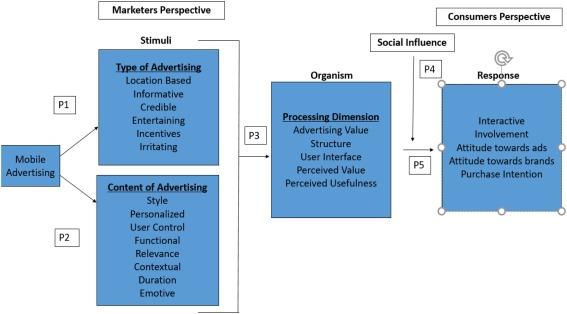Unlocking Success: How to Seamlessly Integrate SEL into the Digital Classroom
In a rapidly digitizing world, education is no stranger to transformation. As classrooms shift online and technology connects us across geographical boundaries, educators face a new challenge—and chance: integrating social-emotional Learning (SEL) into the digital classroom. Seamless SEL integration not only boosts academic achievement but also supports students’ mental health, resilience, and interpersonal skills. This guide dives deep into the benefits, strategies, and real-world examples of embedding SEL into your digital teaching toolkit, unlocking lasting success for every learner.
What is SEL? Why Does it Matter in the Digital Classroom?
Social-Emotional Learning (SEL) is the process of developing essential life skills related to self-awareness, self-management, social awareness, relationship skills, and responsible decision-making. in a digital classroom, these skills are more crucial than ever, as students navigate online dialog, collaboration, and self-regulation.
- Self-Awareness: Understanding one’s strengths, weaknesses, emotions, and values.
- Self-management: Managing emotions, setting goals, and motivating oneself.
- Social Awareness: Empathizing with others and appreciating diversity.
- Relationship Skills: Communicating, cooperating, and resolving conflict constructively.
- Responsible Decision-Making: Making ethical, constructive choices in varied situations.
Digital environments can make connections feel impersonal,but by integrating SEL,educators empower students to form meaningful connections,manage digital stress,and succeed academically.
The Benefits of Integrating SEL into Online Learning
- Improved engagement: SEL increases motivation and participation, fostering a more interactive digital classroom.
- Enhanced Academic Performance: Research reveals that students exposed to high-quality SEL see achievement scores rise by an average of 11 percentile points.
- Better Emotional Well-Being: SEL reduces anxiety, depression, and behavioral issues, nurturing happier, healthier students.
- Stronger Digital citizenship: SEL equips students with critical thinking and empathy, creating respectful online communities.
- Fostering Equity and Inclusion: SEL promotes understanding and acceptance, making online classrooms more equitable for all learners.
Practical Strategies to Seamlessly Integrate SEL into Your Digital Classroom
Ready to unlock the power of SEL online? Here are tested, actionable strategies you can begin implementing today:
-
Start Each Session with an SEL Check-In
Use swift digital tools like polls (e.g., Mentimeter, Google Forms) or emoji reactions to gauge students’ emotions before lessons begin. Simple prompts like “How are you feeling today?” invite reflection and show students you care.
-
Incorporate Digital Journaling and Reflection
encourage students to maintain a digital journal using apps such as Padlet or Google Docs. Assign prompts related to gratitude, goal setting, or emotional reactions to recent events.
-
Create Virtual Collaboration opportunities
leverage breakout rooms, online discussion boards, or project-based learning activities. Assign roles that emphasize collaboration, empathy, and respectful communication.
-
Model SEL Skills and Digital Etiquette
Lead by example—demonstrate active listening, positive feedback, and digital civility.Address conflict or misunderstandings with transparency and empathy.
-
Use Mindfulness and brain Breaks
Incorporate short mindfulness exercises using apps like Calm or YouTube videos. Allow time for students to move, stretch, or simply breathe between digital sessions.
-
Embed SEL objectives in Lesson Plans
Align academic goals with SEL competencies. Such as, pair group projects with objectives like “practice effective communication” or “reflect on group dynamics in a digital setting.”
-
Leverage EdTech Tools for SEL
Platforms like Flipgrid, Pear Deck, and Nearpod allow for anonymous sharing, collaborative feedback, and guided SEL activities, which build classroom community even in online environments.
Case Studies: SEL Integration in Real Digital Classrooms
Case Study 1: Increasing Engagement with Digital Check-Ins
At a middle school in California, teachers began each week with a virtual circle time using Zoom breakout rooms. Students shared highs and lows, discussed coping strategies, and practiced active listening. After a semester, student engagement scores improved by over 20%, and absenteeism decreased.
Case Study 2: Digital Peer Mentorship
In a rural online academy, students paired up as digital “buddies” in a program powered by Google Classroom. Mentors helped peers set goals and process challenges, leading to increased participation and better social skills.
Case Study 3: SEL-Infused Project-Based Learning
An international high school used Padlet for students to collaborate globally on service projects. Weekly reflections focused on empathy,respect,and overcoming misunderstandings. Students reported feeling more connected and confident, even in a virtual setting.
Tips for Educators: Overcoming common Challenges
- Digital Fatigue: Keep SEL activities brief and varied—aim for quality over quantity.
- Privacy Concerns: Use secure platforms and limit sensitive sharing to private channels.
- Student Reluctance: Start small, respect boundaries, and celebrate genuine participation.
- Diverse Needs: Differentiate activities and offer multiple ways for students to express themselves.
- Family Engagement: Keep parents informed about SEL goals; share strategies and resources for home integration.
Frist-Hand Experience: A Teacher’s Perspective
“Integrating SEL online transformed my classroom. By opening every lesson with a feelings check-in and giving students asynchronous reflection prompts, I noticed not only fewer behavioral incidents but also more joy and engagement.even my shyest students found their voices through tools like Flipgrid,creating a warm,interactive online community.”
Best Practices Checklist: Implement SEL in Your Digital Classroom
- Embed SEL objectives in digital lesson plans
- Use multiple platforms for student voice and choice
- Model empathy, respect, and digital citizenship
- Provide regular feedback and opportunities for self-reflection
- Involve families and caregivers in the SEL journey
Conclusion: Building a Brighter Online Education with SEL
Integrating Social-Emotional Learning into the digital classroom is more than an educational trend—it’s a proven foundation for student well-being, engagement, and achievement in the modern world. By employing thoughtful digital strategies and embracing every student’s unique voice, educators unlock academic growth and nurture lifelong skills for success. start small, stay consistent, and watch your digital classroom blossom into a thriving, supportive community.
Ready to transform your digital classroom? Begin integrating SEL today, and pave the way for a future where every student feels seen, heard, and empowered—no matter where learning happens.

